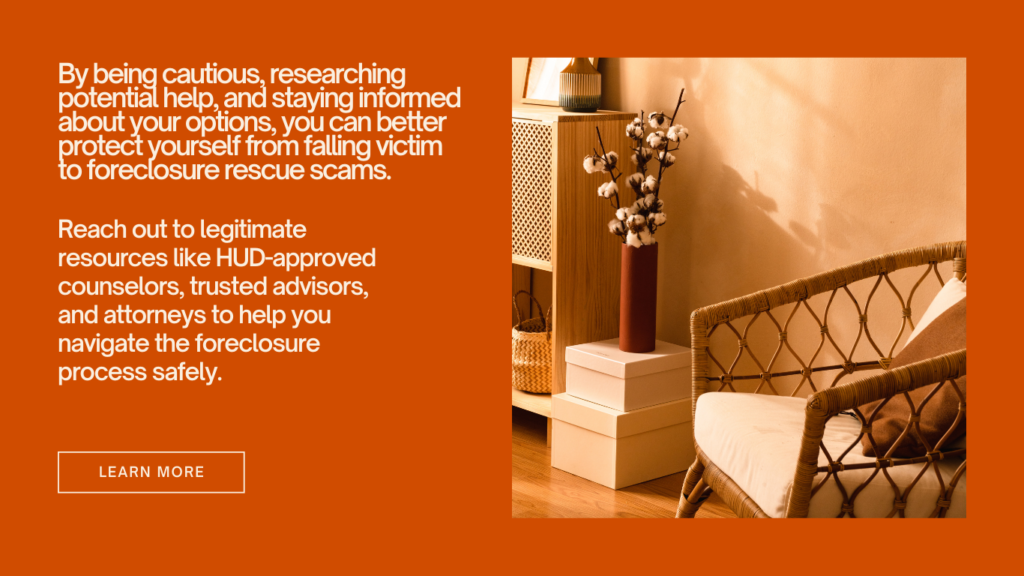

Avoid Foreclosure Rescue Scams
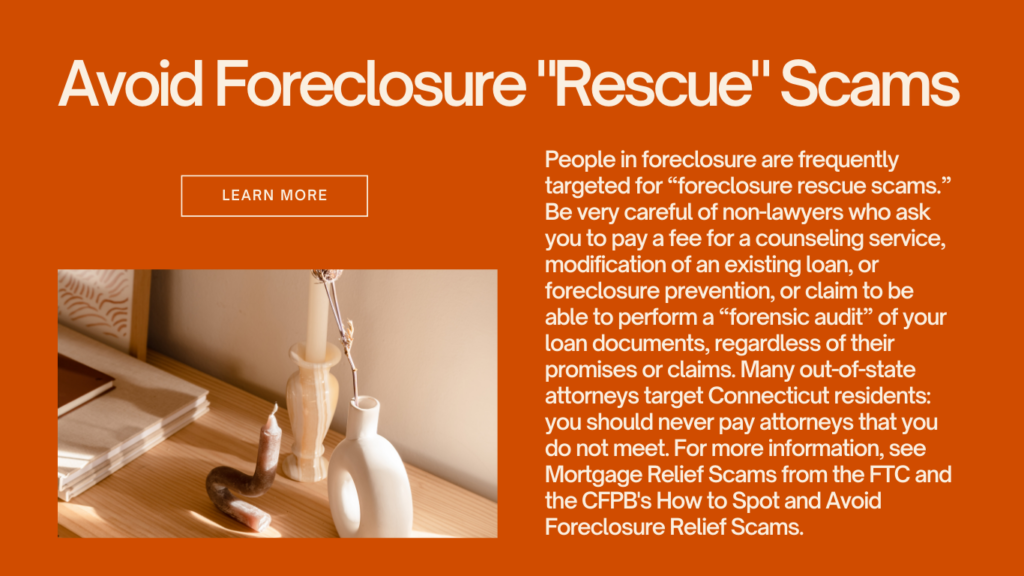
Con Artists will try to steal a home
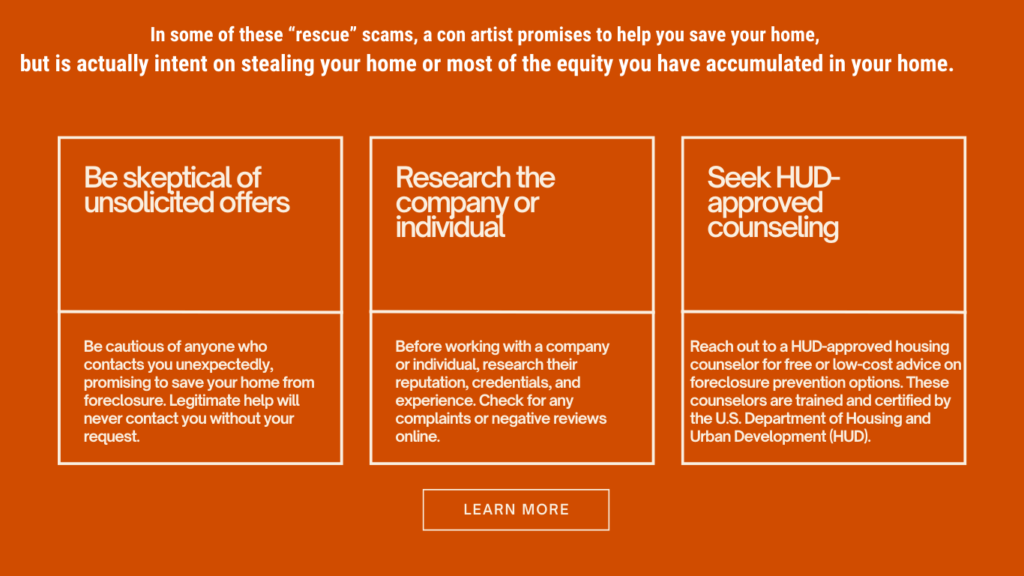
Turn to a HUD-approved housing counselor
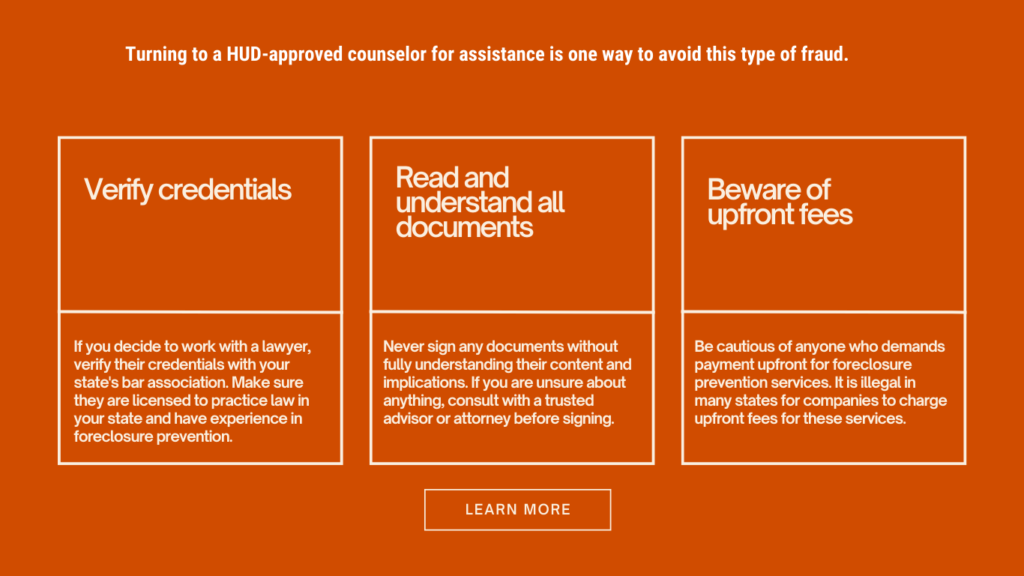
Read and understand all documents: Never sign any documents without fully understanding their content and implications. If you are unsure about anything, consult with a trusted advisor or attorney before signing.
Beware of upfront fees: Be cautious of anyone who demands payment upfront for foreclosure prevention services. It is illegal in many states for companies to charge upfront fees for these services.
Homeowners are deceived by scammers
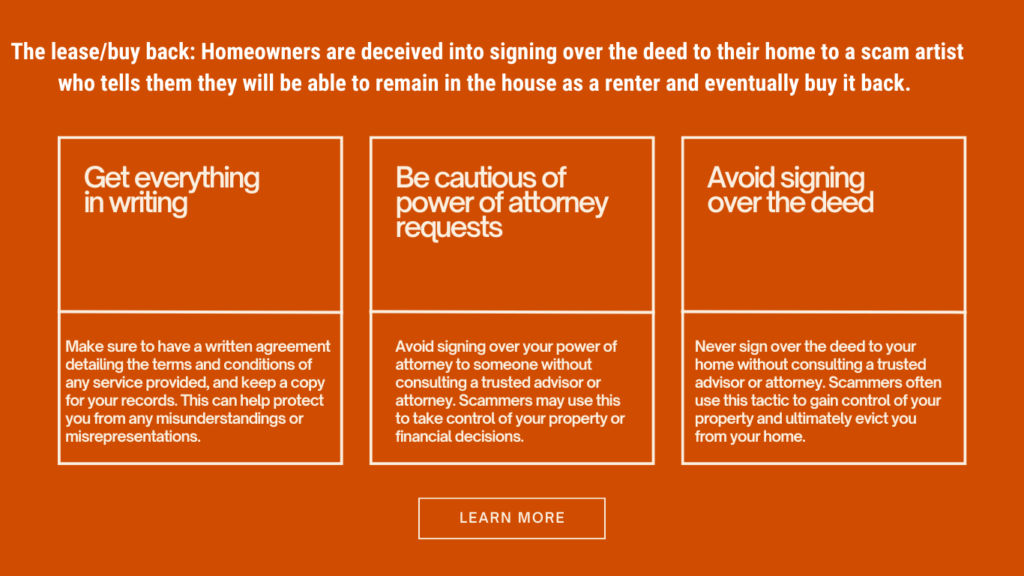
Be cautious of power of attorney requests: Avoid signing over your power of attorney to someone without consulting a trusted advisor or attorney. Scammers may use this to take control of your property or financial decisions.
Avoid signing over the deed: Never sign over the deed to your home without consulting a trusted advisor or attorney. Scammers often use this tactic to gain control of your property and ultimately evict you from your home.
Report scams
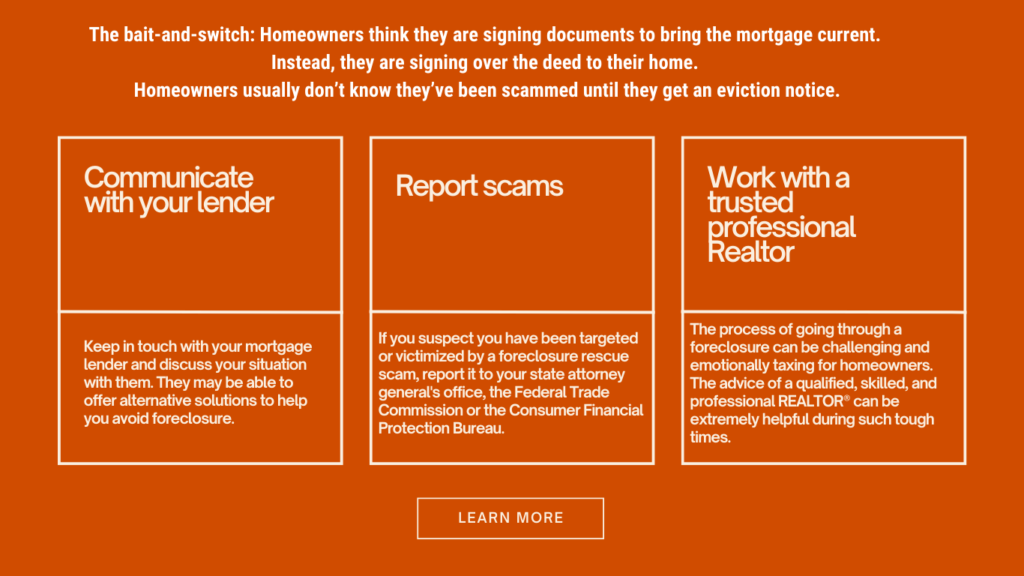
Report scams: If you suspect you have been targeted or victimized by a foreclosure rescue scam, report it to your state attorney general’s office, the Federal Trade Commission (FTC), or the Consumer Financial Protection Bureau (CFPB).
Protect yourself from falling victim
